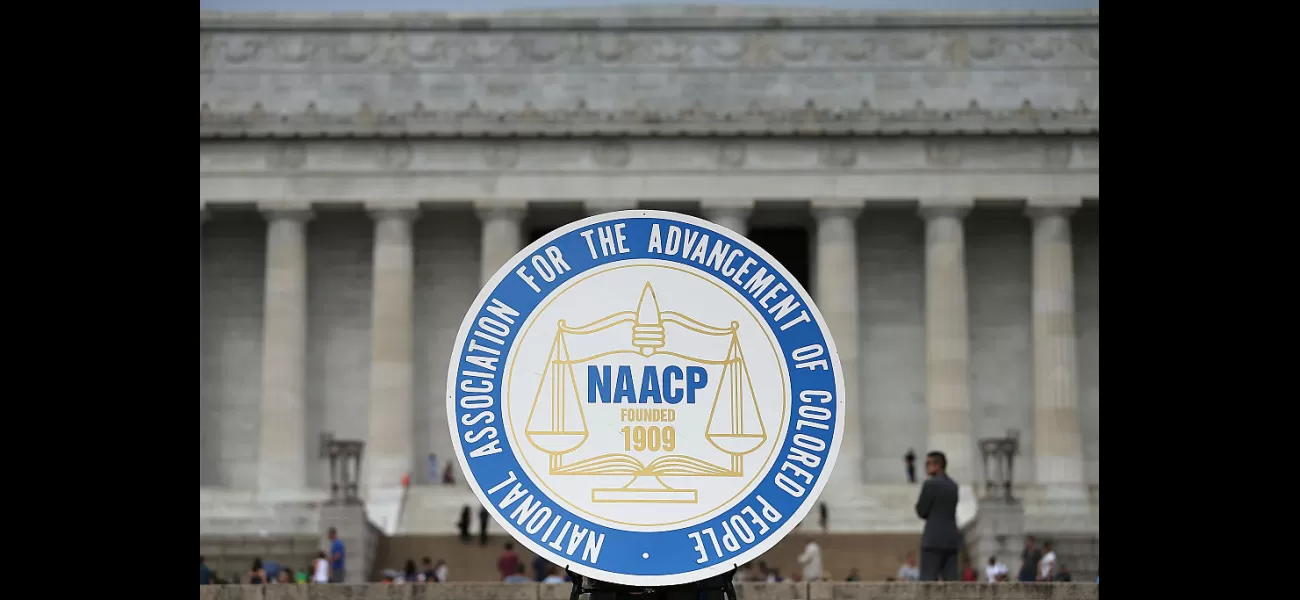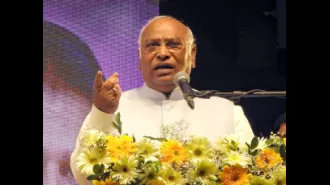A Kentucky state representative stopped a diversity initiative and referred to her father as a "slave" during an NAACP meeting.
Decker shared with a mostly Black crowd that her father, who is white, was formerly enslaved.
February 14th 2024.

During a meeting with the local NAACP chapter, State Rep. Jennifer Decker made a bold statement about her family history. The 68-year-old lawmaker was discussing an anti-DEI bill she and her colleagues were supporting when she was asked about her family's involvement in the slave trade. In response, she shared a personal story about her white father, who was born into poverty on a dirt farm in Lincoln County. Her father's mother was the illegitimate daughter of a prominent person who allowed them to work for him as slaves. Decker explained that her father, being white, was technically a slave to a white man.
After the meeting, reporter Joseph Gerth approached Decker to gain a deeper understanding of her remarks. He expressed his confusion over her claim that a white man was a slave, especially after the 13th Amendment abolished slavery. Decker elaborated, saying that her father's family was given property by a powerful man, but they were not paid for their labor. Gerth, who is also white, found her comments offensive. He pointed out that during her speech, Decker had spoken about the purpose of diversity, equity, and inclusion efforts, but seemed to only focus on increasing Black enrollment. However, these programs serve a much broader purpose and are not solely centered on race.
For example, at the University of Kentucky, the DEI office provides support for students with disabilities, counseling services for students who have experienced racism, and offers unconscious bias training for employees. DEI learning modules are also incorporated into entry-level courses. In contrast, HB 9, the bill Decker and her colleagues were supporting, aimed to dissolve departments and staff positions related to DEI in public colleges and universities. Decker argued that this bill would hold the postsecondary system accountable for dismantling the "failed and misguided" DEI bureaucracies that have made college more divided, expensive, and less tolerant.
Under HB 9, any programs that promote "discriminatory concepts" would be dissolved by June 30th, and the Council on Postsecondary Education would be required to remove "equity" as a priority in strategic plans and initiatives, including diversity plans and cultural competency certification programs. These changes could have a significant impact on efforts to combat racism in the state, making Decker's comments at the NAACP meeting particularly inappropriate.
In 2021, the Shelbyville NAACP chapter and the Shelbyville Community Remembrance Project Coalition worked together to honor six Black men who were killed by lynch mobs in Shelby County between 1878 and 1911. Three markers were placed in downtown Shelbyville to honor Reuben Dennis, Sam Pulliam, Clarence Garnett, Jimbo Fields, Wade Patterson, and Eugene Marshall, who were all hung from the railroad bridge near the tracks. Given the NAACP's involvement in these efforts, Decker's comments could be seen as tone-deaf and out of touch with the ongoing fight against racism in the state.
After the meeting, reporter Joseph Gerth approached Decker to gain a deeper understanding of her remarks. He expressed his confusion over her claim that a white man was a slave, especially after the 13th Amendment abolished slavery. Decker elaborated, saying that her father's family was given property by a powerful man, but they were not paid for their labor. Gerth, who is also white, found her comments offensive. He pointed out that during her speech, Decker had spoken about the purpose of diversity, equity, and inclusion efforts, but seemed to only focus on increasing Black enrollment. However, these programs serve a much broader purpose and are not solely centered on race.
For example, at the University of Kentucky, the DEI office provides support for students with disabilities, counseling services for students who have experienced racism, and offers unconscious bias training for employees. DEI learning modules are also incorporated into entry-level courses. In contrast, HB 9, the bill Decker and her colleagues were supporting, aimed to dissolve departments and staff positions related to DEI in public colleges and universities. Decker argued that this bill would hold the postsecondary system accountable for dismantling the "failed and misguided" DEI bureaucracies that have made college more divided, expensive, and less tolerant.
Under HB 9, any programs that promote "discriminatory concepts" would be dissolved by June 30th, and the Council on Postsecondary Education would be required to remove "equity" as a priority in strategic plans and initiatives, including diversity plans and cultural competency certification programs. These changes could have a significant impact on efforts to combat racism in the state, making Decker's comments at the NAACP meeting particularly inappropriate.
In 2021, the Shelbyville NAACP chapter and the Shelbyville Community Remembrance Project Coalition worked together to honor six Black men who were killed by lynch mobs in Shelby County between 1878 and 1911. Three markers were placed in downtown Shelbyville to honor Reuben Dennis, Sam Pulliam, Clarence Garnett, Jimbo Fields, Wade Patterson, and Eugene Marshall, who were all hung from the railroad bridge near the tracks. Given the NAACP's involvement in these efforts, Decker's comments could be seen as tone-deaf and out of touch with the ongoing fight against racism in the state.
[This article has been trending online recently and has been generated with AI. Your feed is customized.]
[Generative AI is experimental.]
0
0
Submit Comment





